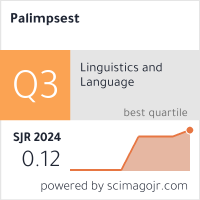ORAL ERRORS TREATMENT IN FLE CLASSROOM: ATTITUDES AND PREFERENCES
DOI:
https://doi.org/10.46763/PALIM251019203mAbstract
Errors are an integral part of language learning and their effective treatment is essential. This article aims to explore the preferences of teachers and learners of French as a Foreign Language (FLE) regarding oral error correction methods. It also examines the correlation between learners’ dominant learning styles and their correction preferences, as well as the differences between the preferences of the two groups. The study, conducted with 99 Croatian FLE learners and 10 teachers, reveals no significant correlation between learning style and learners’ preferences for error treatment. Moreover, no statistically significant differences were observed between teachers’ and learners’ preferences. However, both groups share a positive attitude toward oral errors and their treatment, despite differing preferences. Learners favor immediate and explicit correction by the teacher, while peer correction is often perceived negatively due to its emotional impact. Teachers, while responsible for corrections, tend to adopt implicit strategies to encourage reflection and sustain learner engagement. These findings, highlighting nuanced preferences, provide insights for adapting pedagogical practices in FLE and optimizing correction strategies to better align with learners’ expectations and needs.
Keywords: oral errors; error treatment; learning styles; teacher and learner preferences; pedagogy of error; French as a Foreign Language (FLE).
Downloads
Downloads
Published
Issue
Section
License
The intellectual property and copyright on the original content of all scientific contributions in the published paper shall remain with the authors. Authors give permission to the JAPS owner to publish the paper. All authors agree to publish the paper under Attribution-NonCommercial-NoDerivatives 4.0 International license (CC BY-NC-ND 4.0)


